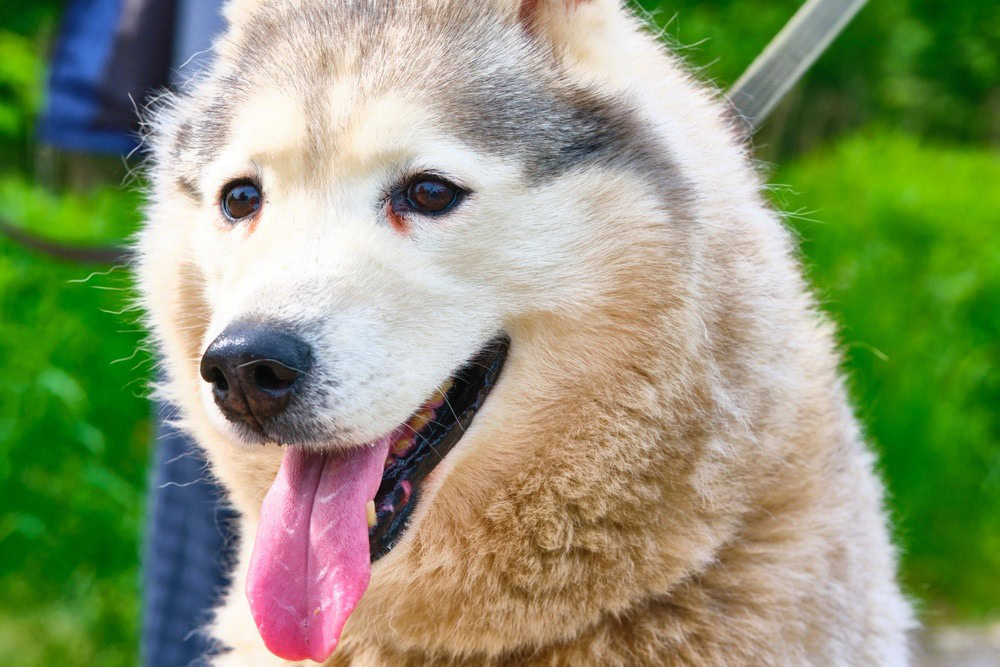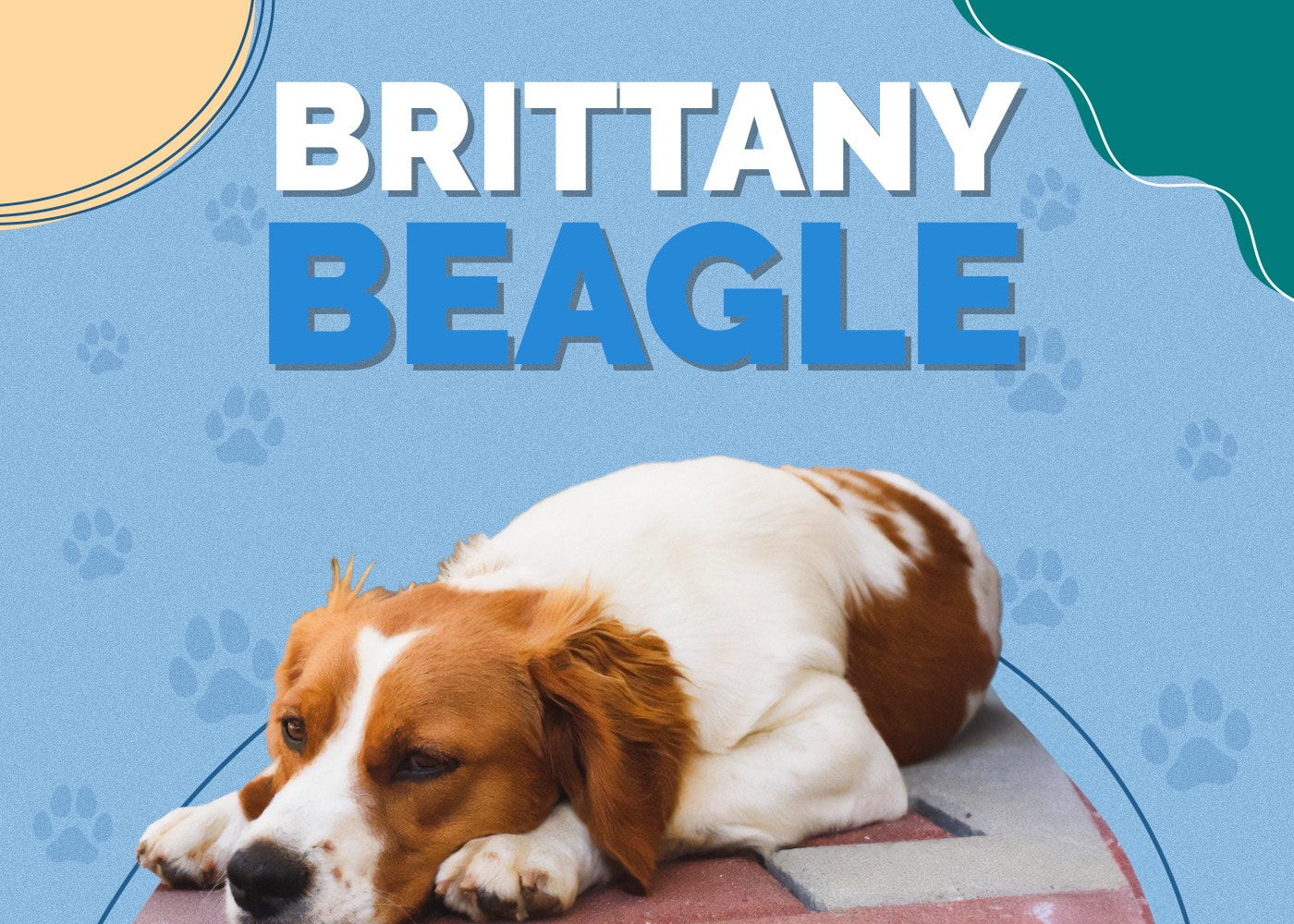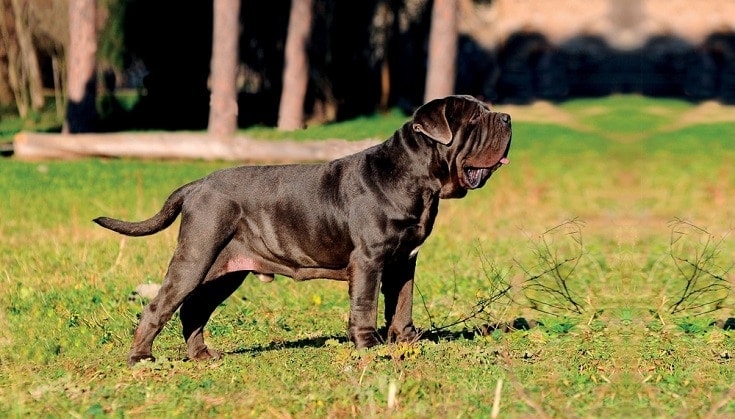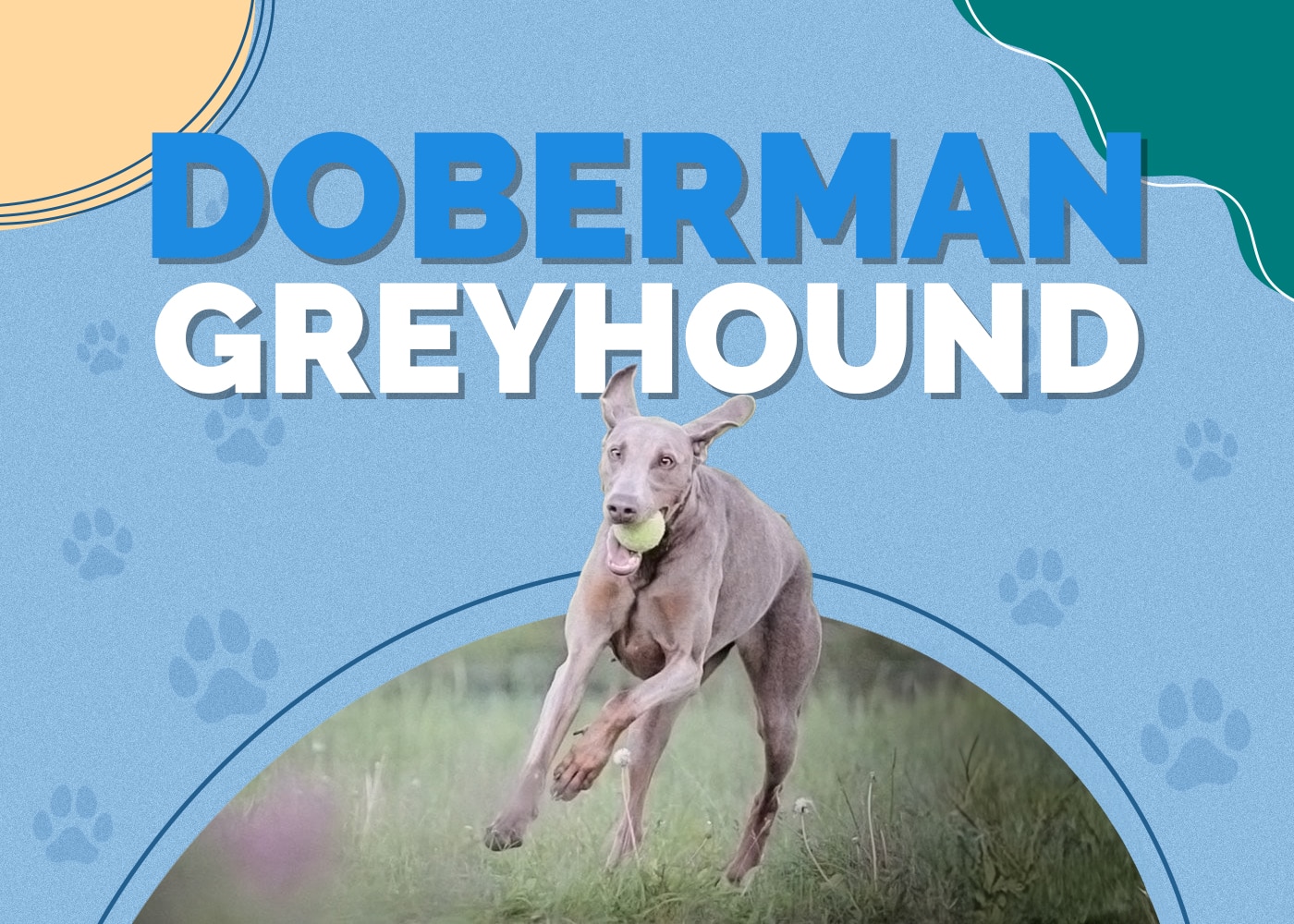Siberpoo (Siberian Husky & Poodle Mix): Info, Pictures, Characteristics & Facts

Updated on

Height:
13-22 inches
Weight:
45-60 pounds
Lifespan:
10-13 years
Colors:
White, black, brown, grey
Suitable for:
Attentive owners, families with older children, owners with large properties, energetic and active owners, those with training experience
Temperament:
Lively, Playful, Energetic, Affectionate, Loyal
The Siberpoo is a mix of a Siberian Husky and a Poodle. Also known as the Poosky, the Huskydoodle, and the Huskypoo, this hybrid breed is loving, affectionate, and has the energy to keep up with even the most active owners.
Despite the fact that their appearance varies quite a bit, Siberpoos are easily recognizable by their Husky-like coloring, wavy or even curly hair, and their common icy blue eyes. Their appearance is very striking, and the variance you find in their looks is matched by that in their personality.
Because the Siberpoo is a mixed breed, each individual dog can resemble one parent over the other in temperament and behavior, or they could be a good mix of both. For the most part, these dogs are loving, friendly, active, and need a lot of attention.
Siberpoos have bold and boisterous personalities, and they’re likely to become a key part of your family if you do decide this is the breed for you.
Siberpoo Puppies
Many people purchase a Siberpoo because they believe their Poodle heritage will make them hypoallergenic. While no dog is truly hypoallergenic, Poodles don’t shed, which means they’re less likely to spread their dander around. This is good news for those allergic to dogs, but not all Siberpoos inherit this trait. The Husky has a thick double coat and sheds heavily, and your Siberpoo may get their shedding tendencies from either parent. You need to expose yourself to an individual dog for an extended period of time before deciding if that pup is right for you.
Siberpoos are extremely affectionate and emotionally needy, and those pups that don’t get the proper amount of attention may act out in undesirable ways. If your dog feels neglected, they may resort to chewing, scratching, or digging. All of these behaviors are common in Huskies who lack their desired attention, and you won’t avoid them in most Siberpoos.
In addition to their emotional neediness, Siberpoos are very active dogs. Both parent breeds need around 45 minutes to an hour of exercise each day, and this hybrid is no different. These dogs have a lot of energy, so even outside of their daily exercise, they’ll often want to play. For this reason, Siberpoos don’t fare very well in apartments and are best suited for owners who have space indoors and outdoors for their pups to run and play.
3 Little-Known Facts About the Siberpoo
1. They have an extensive lineage.
Siberpoos came about sometime in the late 1900s, but their parent breeds can be traced back for centuries. Huskies are believed to have been brought to America around 12,000 years ago, and their bloodline has been protected for centuries as they were bred for pulling sleds and guarding property. Poodles are believed to have originated in Germany in the 1400s, and they were originally bred as hunting dogs for retrieving game.
2. They’re very adaptable to climate.
Given their heavy double coat and origination in very cold climates, Siberian Huskies fare best in cold climates. Many people believe the Siberpoo inherits this same predilection for colder temperatures, but they actually can live happily in most climates.
The Siberpoo’s dense fur makes them great candidates for cold temperatures, but they also don’t overheat easily in warm climates like Huskies do. Siberpoos should never be left exclusively outside, but you can rest assured that your dog will be comfortable living and exercising in just about any climate.
3. They need mental exercise.
The Siberpoo inherits a high level of intelligence and inquisitiveness from both parent breeds. This means you’ll have a very smart dog who will pick up on new concepts quickly, but it also means they can easily become bored.
Because their intelligence can lead to some restlessness, stimulating your Siberpoo mentally will be very important for keeping their minds sharp and engaged. Developing new games and introducing new toys that require your pup to think and reason are highly recommended for this breed to keep them healthy. Mental exercise will also mean your Siberpoo will be less likely to get their energy out with destructive behavior.

Temperament & Intelligence of the Siberpoo 🧠
Siberpoos are extremely affectionate dogs that love human interaction. They’re loyal and protective, and their high intelligence means they are an excellent judge of character. If they meet a person they believe isn’t good-natured, they’ll let them know. These types of interactions will be very infrequent, so you won’t need to worry too much about how your dog will interact with other people.
With the exception of people they deem to be “bad,” they will be welcoming and friendly to just about everyone they meet. They’ll be closest with their family members, but provided they’re socialized properly from a young age, they’ll get along with strangers perfectly well.
Are These Dogs Good for Families? 🏡
Siberpoos take the intelligence and obedience of the Poodle and mix those with the affection and love of human interaction from the Husky. These character traits make for an excellent pet for the right family. Siberpoos will very happily live with families of any size. In fact, these dogs have a high energy level and love playing, so large families with lots of people who have time and energy to give are best for this breed.
Your Siberpoo won’t have a malicious bone in their body, but they sometimes struggle in their relationships with small children. Given this dog’s size and energy, it’s possible for them to accidentally knock over or play too rough with small children. Additionally, if a child is interrupting your pooch during work or play, they may get defensive and snap at the child. Although this is a rare occurrence, this breed is recommended for families with grown children, and you should always be mindful of your dog around kids.
The energy level of this breed may prove to be too high for retirees or older family members. The unintentional possibility of knocking over or accidentally hurting an older family member is there, so you’ll need to be careful that their level of play doesn’t get out of hand around older family members or friends.
Siberpoos also have very abundant and outward personalities, which means they’ll always let you know what they’re feeling. It also means that they’ll probably feel more like a family member than a pet. Your pup is bound to bring a lot of joy and laughter to your home, making this breed an excellent fit for most families.
Does This Breed Get Along with Other Pets? 🐶 😽
Siberpoos generally don’t have any issues with other dogs, so if you’re bringing your pup into a home with another dog or taking them to the dog park, you shouldn’t run into any problems. Just like with children, your Siberpoo may not take too kindly to a dog that tries to interrupt them from play or work. If your Siberpoo is pestered they may growl or show some minor aggression, but this will be a rare issue.
On the other hand, cats may pose a problem for you and your Siberpoo. This breed inherits a very strong prey drive from their Husky parent breed, so you may find that your Siberpoo takes a little too much interest in your cat or other small animals. This can be a concern during walks as well, as they may get the sudden urge to chase a squirrel, rabbit, or other small rodents. These dogs are best suited for homes without cats or smaller pets, and they should be harnessed when walking.
 Things to Know When Owning a Siberpoo:
Things to Know When Owning a Siberpoo:
Food & Diet Requirements 🦴
Siberpoos are considered medium-sized dogs, but their energy levels and propensity for exercise means they’ll need more food than the average dog of this size would. You should expect to feed your Siberpoo around three cups of dry dog food each day. Weight gain and obesity aren’t very common in this breed, but they can be an issue for some. You should consult your vet for proper feeding volume for your dog, and of course schedule a visit if you notice uncharacteristic weight gain.
Unfortunately, this breed is afflicted with gastric dilation-volvulus (GDV), more commonly known as bloat. This is when the stomach fills with gas and then flips over on itself internally. This can be a very serious health issue. Although there is no way to avoid bloat entirely, you should never exercise your dog directly after meals or after drinking large volumes of water. Splitting their meals up into two or three smaller portions throughout the day can also help prevent GDV.
Aside from a diet high in protein, you may want to consider a food or supplement that can supply your pooch with omega-3 fatty acids. This will help keep your dog’s joints in tip-top shape and keep their coat nice and shiny.
Exercise 🐕
Siberpoos are energetic dogs, so you need to plan on 45 minutes to an hour of exercise every single day. This amount of walking or running in addition to lively play and mental stimulation will help reduce your dog’s pent up energy, and this will keep both you and your dog happy.
This breed is susceptible to hip dysplasia and other joint problems. Exercise, although largely healthy, can exacerbate these problems in Siberpoos. For this reason, it’s best to exercise your dog on softer surfaces like grass or dirt whenever possible. Soft play areas are especially beneficial for Siberpoo puppies whose joints are still developing.
Training 🦮
Both Siberian Huskies and Poodles are highly intelligent, which means your Siberpoo will learn commands, tricks, and rules for daily living exceptionally quickly. However, these dogs also inherit some stubbornness from their Husky ancestors. This leads to a dog that understands what you want and simply may not want to listen.
Given their lineage and history as a pack dog, Huskies quickly learn who the pack leader is in any situation, and your Siberpoo has this same ability. If no leader presents themselves to your dog, they will gladly take on that role. If this happens, you’ll have a dog that calls the shots and does what they please when they please.
Siberpoos are therefore recommended for experienced dog owners who know how to establish leadership and authority. If trained correctly, these dogs will be very obedient and willing to please, but it takes a strong and devoted owner and a whole lot of positive reinforcement to get there! Beginning training early and remaining consistent are also keys for establishing your dominance, so be ready to train from puppyhood onward.
Grooming ✂️
Along with extensive exercise and training, you’ll have to set aside some time every day or, at least, every other day to care for your dog’s coat. Daily brushing will help maintain your Siberpoo’s dense fur, and it will also help cut down on shedding. Your dog’s hair may resemble the thick fur of the Husky that sheds quite a bit, or the thinner, wavier hair of the Poodle that doesn’t shed nearly as much. If your dog’s fur is more like that of the Husky parent breed, daily brushing will be essential. Thinner Poodle hair can be brushed every other day.
Depending on the type of fur your dog has, you may need to take them to the groomer every so often for trims. Bathing can be included in your groomer visit, but your Siberpoo shouldn’t get baths more than once a month. Bathing too often can lead to skin infections and can reduce the presence of your dog’s natural and healthy skin oils.
Aside from coat maintenance, grooming your Siberpoo will be fairly straightforward. You’ll need to keep their nails trimmed at all times, as active dogs have the tendency to break and crack their claws. You’ll also want to brush their teeth on a weekly basis to promote dental hygiene and wipe their ears clean about once a week to help prevent infection and wax build-up.
Health and Conditions ❤️
Siberpoos come from two relatively healthy parent breeds, so your pooch will generally be hearty and healthy. However, some health conditions are unavoidable, so you should be on the lookout for these somewhat common ailments and consult your vet if you notice any symptoms in your pooch.
- Patellar Luxation
- Bloat
- Hip dysplasia
- Leg-calve perthes disease

Male vs Female
Male and female Siberpoos will be largely the same in size and weight, and their temperaments won’t vary much based on sex. You may find that males can be a bit more aggressive toward small children if they are provoked, and they may also be a bit more energetic and playful. For the most part, gender won’t play into your dog’s temperament or behavior nearly as much as other factors will, like which side of their heritage they get their personality from.
 Final Thoughts
Final Thoughts
The Siberpoo is a wonderful hybrid breed, pulling the best traits from both the Husky and the Poodle. These dogs are highly affectionate and emotionally needy, so expect to spend a lot of time giving your pooch the proper amount of attention.
These dogs make excellent additions to families of all sizes, but they’re best with adults and fully grown children. They have big personalities and can be goofy and very playful. They love physical exercise, and they love being outdoors, so they’re perfect for active and adventurous owners.
More than anything else, Siberpoos make wonderful companion dogs, and they adore human interaction. If you’re looking for a best friend and are willing to dedicate time to training, socialization, and exercise, this may be the perfect breed for you and your family.
Featured Image Credit: LemPro Filming Life, Shutterstock


 Things to Know When Owning a Siberpoo:
Things to Know When Owning a Siberpoo: Final Thoughts
Final Thoughts








